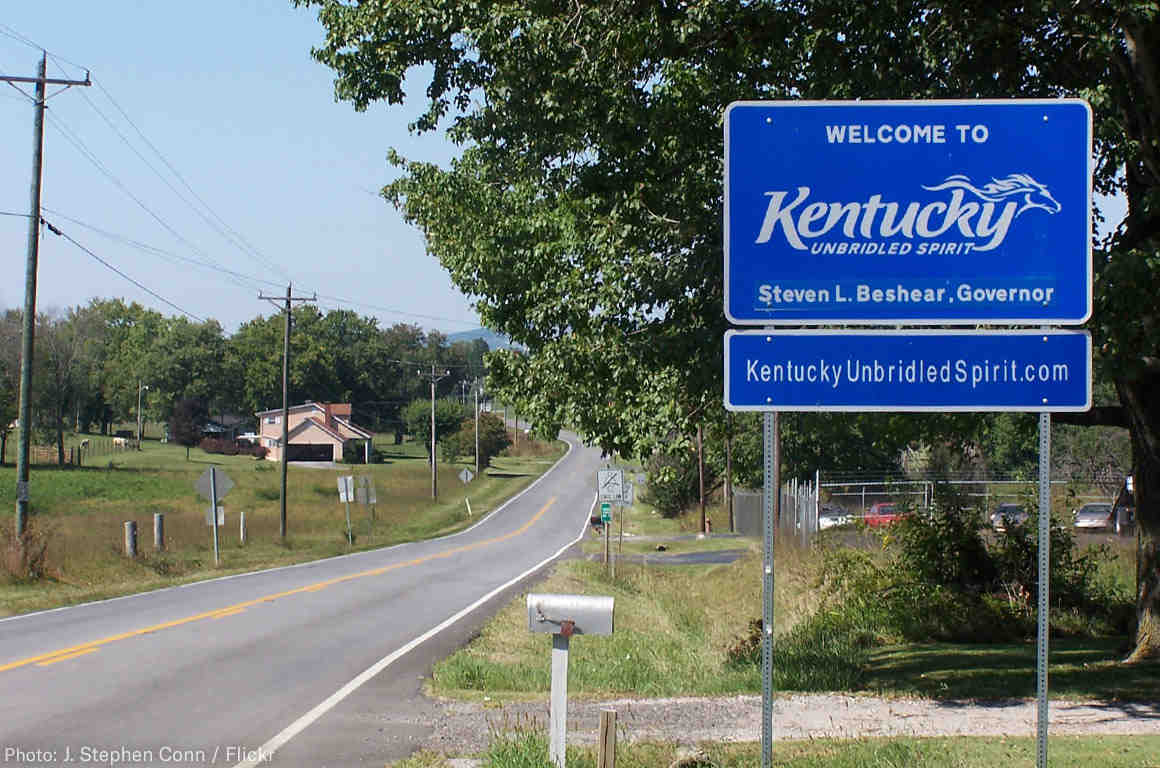From Guest Blogger Haley Kieser: Green Spotlight–How Kentucky’s Residents Can Create a Greener and More Sustainable State

A recent study conducted by WalletHub analyzed a variety of environmental factors—including air, soil, and water quality, as well as energy consumption and solid waste disposal—to determine the efficacy of green practices around the United States. The report indicates that Kentucky has particularly low water quality, ranking 48th overall, making it one of the least environmentally friendly states in the Union. As a state that relies on a thriving agricultural industry, it is critical that Kentucky take steps to reform its environmental practices to ensure that future communities can thrive in years to come.
Water Conservation
With the exception of Alaska, Kentucky is home to the country’s largest network of navigable waterways. According to the WalletHub study, Kentucky ranks last, along with three other states, in overall water quality across the US.
Poor water quality is concerning for a multitude of reasons, particularly in a state that relies so heavily on agricultural. First, and perhaps most immediately apparent, is that it affects drinking water for local communities. Second, pervasive surface water contamination affects recreational usage and scenic beauty, which significantly impacts tourism and community wellness. Third, polluted water makes rivers and lakes uninhabitable for fish and wildlife, threatening local ecology.
In Kentucky, low water quality can be attributed to the predominance of farmland across the state. Runoff from pastures and manure-fertilized crops have contributed to significantly elevated levels of E. coli, a bacteria that can cause dangerous health conditions in high concentrations. In addition, analysis reported by Bluegrass Green Source indicates that septic system leaks also contribute to extreme levels of E. coli in Kentucky surface water.
Such alarming reports of contamination suggest that Kentucky take necessary steps to reform agricultural and household practices to protect waterways. For example, farmers should keep animals away from riparian areas, and instead use livestock tanks for watering. They should also create and maintain natural, vegetative buffers between pastures and surface water. Practicing no or low-till agricultural methods, as well as rotational grazing, will significantly reduce runoff and erosion that pollutes rivers and lakes. In areas that are particularly susceptible to runoff, retention ponds should be created well away from natural water sources.
Irrigation and lawn watering should be conducted conservatively and in the early morning or evening to avoid high rates of evaporation. Households can also do their part by having their septic systems inspected regularly, and ensuring that any necessary repairs are made in a timely manner. Similarly, it is necessary for Kentucky residents to properly maintain plumbing to prevent general over usage and waste. Homeowners and businesses should repair leaks immediately, install low-flow fixtures and toilets, and invest in high-efficiency dishwashers and washing machines.
These water conservation practices are not only beneficial to Kentucky’s communities and local ecology, but they are also financially responsible. Conservation is preventative, reducing the risk of catastrophic clean up and restoration projects, as well as lowering water bills.
Waste Management
Solid waste management is another critical component of healthy communities, particularly in states that rely on agricultural sustainability. Thus, it is essential to keep Kentucky’s many waterways and farmlands pristine and free of garbage.
The most effective way to manage solid waste is to reduce consumption. This preventative approach encourages residents to avoid purchasing unnecessary or frivolous items, invest in products that last or can be repaired, and limit their use of plastics, particularly when alternatives are available. Switching to recycled paper products like toilet paper and paper towels also cuts down on waste, while simultaneously supporting sustainable business practices.
Recycling is also key, whether it is done through curbside collections or visiting local recycling centers. Larger items, such as appliances, mattresses, and furniture can should also be recycled responsibly. Which most waste removal companies are available to help with the heavy lifting and proper disposal methods.
Environmental Education
Lastly, community organizing and public education are paramount to preserving and protecting the environment in Kentucky. Residents can volunteer with local grassroots organizations that pick up garbage, plant trees, and campaign for green legislation. Registering to vote and supporting legislation that encourages clean water initiatives, habitat restoration, and renewable energy is a powerful way to ensure positive environmental change for future generations.
In order for this to be effective, businesses and families should have access to local sustainability resources that encourage effective water conservation and recycling practices. Similarly, educational programs should be implemented to teach children the importance of developing green habits that will stay with them into adulthood. When communities are well informed, they can make positive change that ensures a greener future not only for Kentucky, but for the whole United States.
